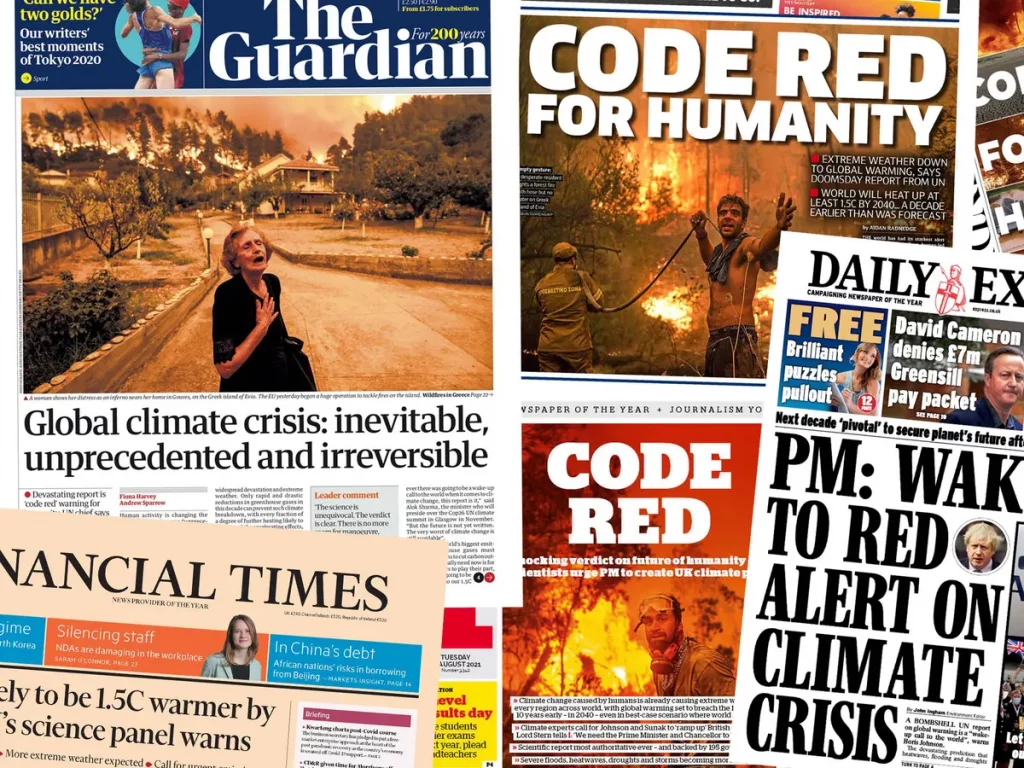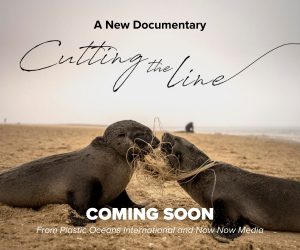Today’s most urgent writing becomes marginalized by failing to honestly question its purpose
“Climate change: 12 years to save the planet? Make that 18 months.”
BBC headline, 24th July 2019.
“Only 11 Years Left to Prevent Irreversible Damage from Climate Change.”
United Nations Press Release, 28th March 2019
“Only Ten Years Left to Fix Climate Emergency.”
World Economic Forum Press Release, 20th February 2020
This last headline doubles down still further in the body of the piece, where WEF president Børge Brende goes on to explain that we only have “a very small window and if we don’t use that window in the next ten years we will be moving around deckchairs on the Titanic.”
A bleak outlook? Certainly.
Terrifying? Little doubt.
Useful journalistic narrative? Nah.
Because the vast majority of ‘environmental journalism’ consumed by readers/viewers/listeners is end-times literature.
If horror and sci-fi like to focus on the post-apocalypse, environmental journalism places itself squarely, unremittingly, irrevocably in the near-apocalypse. It seems to consider itself trapped in this time-frame, as though any other narrative will rob it of oxygen and urgency, whereas the truth is that what has most robbed it of oxygen over the last generation is itself.
Which is not to negate the issues, or the import, or the basement-rack-use we humans are giving our earth, it’s just a matter of how we best choose to communicate the broad, diverse narratives about this incredible, unique planet we find ourselves on.
And terrorizing your audience at a level of permanent tonal scream is – a humble suggestion – maybe not it.
There are so great many ‘becauses’ at this point, it’s difficult to know where to begin, but here goes:
Because how many times can you be told the world is going to end, day after day?
Because what does an individual, with their own all-consuming daily worries, do with the purported knowledge that the apocalypse is nigh, when all they can do is to do their best to stave off their own personal or family apocalypse on any given day?
Because when the scale of the problem is so disempoweringly HUGE, how do you make sense of your place in the solution, even if you want to (which, frankly, most of us do).
Because – and here’s the real underscore to all this – a terrorized population freezes.
And it’s an inspired population which acts.
Sometimes developed structures follow on from events, at other times they are able to precede, anticipate or even engineer narratives in their own right. Despite the fact that environmental journalism has fundamentally existed since storytelling began, it’s only really our modern crises that have called it into being in its own right, which has meant that the genre, or discipline, was born automatically into a form which gave it a finite, flawed paradigm:
Writing about the environment is designed to convey, in a time-specific, precipitous manner, how mankind’s misuse of our own context will lead to our own demise.
It’s certainly Shakespearean. It also happens to be – yes – almost certainly true.
But is it useful? Is it helpful? Is it achieving its intended effects?
Forget opinions, look at the effects generated by these narratives over the last twenty years. Broadly speaking, it has generated almost total inaction.
So the answer, sadly, has to be no.
Which necessarily brings us to a thought experiment: Let’s imagine for a moment that writing about the environment is able to jettison its emotional baggage and reconsider its shape and purpose. What would that shape and purpose ideally look like? How would it design itself?
At the risk of being laughed out of journalism, here are some possibilities:
• Let’s tell the best stories, about people we know, who are doing amazing things. Our neighbors, our workmates, our friends. There are heroines and heroes all around us, if we start to pay attention. Let’s draw the beauty in the dawns and the dusks, by word, by thought, by image, and share that hope and that marvel. Let’s localize our awareness to the street corner and the plants in our garden and smiles at the people-we-see-but-don’t-yet-know and follow that up with a word and then another word and build by increments. They have undoubtedly had amazing lives – lives almost certainly spent trying to do right by themselves and others. Let’s hear those stories and then re-tell those stories. Let’s understand that local is not small or diminished, but is the space we exist in and in which we can have an effect. Our environment is not a notional extra, it is our environment, where we find ourselves and can make magic happen. And that none of this needs recognition or funding, it just requires us to be humans.
• Let’s make environmental journalism about the innate and achieved possibility which is already taking place in the world around us, and which inspires us with its potential.
• Let’s make environmental journalism about the world we want to inhabit, not the world we fear.
• Let’s make it be the light on the path to the world we wish for.
Jon Bonfiglio is a broadcast and print journalist, as well as Managing Editor for Plastic Oceans International’s written content.


